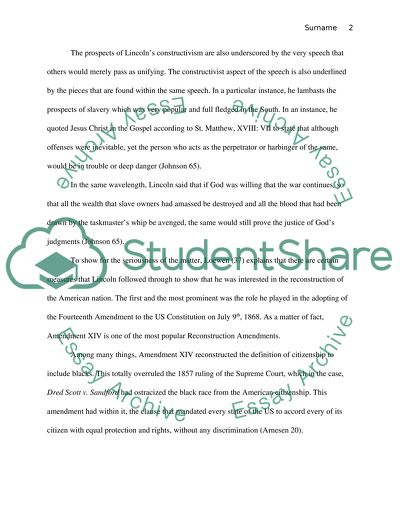Abraham Lincoln, Slavery, and the Civil War Essay. Retrieved from https://studentshare.org/history/1443534-abraham-lincoln-slavery-and-the-civil-war
Abraham Lincoln, Slavery, and the Civil War Essay. https://studentshare.org/history/1443534-abraham-lincoln-slavery-and-the-civil-war.


